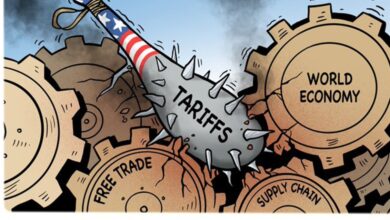India rejects BYD’s $1 bln factory proposal

India rejects BYD’s $1 bln factory proposal
According to a report from The Economic Times, India has rejected a significant investment proposal from Chinese automaker BYD Co, which sought to establish a $1 billion factory in the country.
The proposed factory was intended to be set up in collaboration with Megha Engineering and Infrastructure Ltd, a Hyderabad-based company. The joint venture aimed to focus on manufacturing electric cars and batteries within India’s borders.
The rejection of the investment proposal from Chinese automaker BYD Co by the Indian government comes at a time of heightened geopolitical tensions and concerns over foreign investments from certain countries.
In recent years, there have been various geopolitical issues between India and China, ranging from border disputes to trade imbalances and security concerns. These factors have significantly influenced the way the Indian government views and evaluates investments from Chinese companies.
National security is one of the paramount considerations for any country, and India is no exception. Given the sensitive nature of industries like automotive and battery manufacturing, which have strategic importance and can be tied to critical infrastructure, the Indian authorities are particularly cautious about foreign investments in such sectors.
There might be apprehensions about technology transfer, potential data security risks, and the possibility of undue influence on key industries by foreign entities.

Economic interests are also key drivers in evaluating foreign investments. India, being one of the world’s largest automobile markets, has ambitious plans to transition towards electric vehicles (EVs) and renewable energy sources.
The government is actively encouraging investments in the EV sector to boost domestic manufacturing, create jobs, and reduce dependence on imported fossil fuels. Any foreign investment that aligns with India’s vision for green and sustainable growth is likely to receive favorable consideration.
Moreover, diplomatic relations between India and China can significantly impact business dealings and investments between the two countries. Geopolitical tensions can lead to regulatory scrutiny, delays in approvals, or even outright rejection of investment proposals, as seen in this case.
Both countries’ stances on political matters can influence the perception of investments, making the evaluation process more intricate and sensitive.
It is important to note that India remains open to foreign investments and collaborations that are in line with its economic and strategic interests. However, given the geopolitical context and the complexities involved, the Indian government must exercise prudence and diligence while assessing investment proposals from certain countries, including China.
As the automotive industry is rapidly evolving, the government’s cautious approach aims to strike a balance between securing national interests, encouraging domestic innovation and manufacturing, and maintaining healthy international trade relations.
Continuous monitoring and evaluation of the geopolitical landscape will play a vital role in shaping India’s investment policies and strategies for the future.
However, it’s worth noting that the information provided by The Economic Times has not been independently verified by Reuters or other sources at the time of the report. This indicates that further verification from reliable news outlets or official statements from the involved parties would be necessary to confirm the accuracy and implications of this development.
The automotive industry’s landscape is rapidly evolving, especially with a global push towards sustainable and eco-friendly solutions, such as electric vehicles. India, being a major player in the automobile market, is an attractive destination for foreign companies seeking to establish their manufacturing facilities in the country.
Nevertheless, the decision to accept or reject foreign investment proposals involves careful consideration and evaluation of various factors to ensure it aligns with the nation’s interests and long-term goals.
India’s Department of Commerce, as well as the Department for Promotion of Industry and Internal Trade (DPIIT), reportedly sought feedback from various other government departments regarding the investment proposal from Chinese automaker BYD Co and its partnership with Megha Engineering and Infrastructure Ltd.
Indeed, the security concerns raised by an Indian official during the discussions about the investment proposal from Chinese automaker BYD Co and its partnership with Megha Engineering and Infrastructure Ltd could have had a significant impact on the government’s decision-making process.
National security is a paramount consideration for any country, and in the case of foreign investments, especially in critical sectors like automotive and battery manufacturing, it becomes even more crucial.
As geopolitical tensions persist between India and China, the Indian government must carefully assess foreign investments from Chinese companies. The concerns may revolve around potential risks related to technology transfer, data security, and the potential impact on India’s strategic industries and infrastructure.
There could also be apprehensions about undue influence or control by foreign entities, which could have implications for India’s economic and industrial autonomy.
Given the sensitive nature of these concerns, the government would have likely taken a cautious approach in evaluating the proposal and weighed the potential benefits of the investment against the perceived risks to national security and economic interests.
It is not uncommon for governments to subject foreign investment proposals to thorough scrutiny, especially when dealing with countries with which they have complex diplomatic relations.
As mentioned earlier, it is essential to keep track of reputable news sources for any official confirmations or further updates on this matter. Geopolitical dynamics can be fluid, and decisions regarding investments can evolve over time.
Understanding the implications of such decisions on India’s investment climate and the automotive industry will require ongoing monitoring and analysis of reliable information from credible sources.




